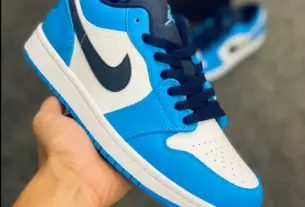In baseball, “defect” refers to a player’s decision to leave their current team to play for another. This term is most commonly associated with international players moving to Major League Baseball.
A defect in baseball has significant implications for both the player and the teams involved. It often occurs when a player seeks better opportunities or wants to play at a higher competitive level, such as the MLB. The move can be fraught with challenges, including contractual disputes and the need to adapt to a new team’s culture and playing style.
Baseball fans and analysts closely watch these movements as they can alter team dynamics and influence the sport’s landscape. Understanding the nuances of player transfers and the impact of defects on team rosters is essential for those following the intricacies of baseball.
The Definition of A Baseball Defect
A “defect” in baseball can be understood as a form of team change, where players leave their original team to join another. This can be likened to a “transfer” in other sports like soccer, albeit with its unique connotations in the world of baseball. A famous example would be the case of Aroldis Chapman, a Cuban-born pitcher who defected from his native Cuba in 2009. Chapman, who was a part of the Cuban national team, left during a tournament in the Netherlands and later signed with the Cincinnati Reds in Major League Baseball (MLB). His move symbolizes a typical “defect” in baseball, showcasing the potential for increased opportunities and elevated play that such a change can bring for players.
Difference Between a Defected Player and a Transferred Player
While both transfers and defects in baseball involve a player moving from one team to another, there are key differences to consider. These differences often lie in reasons for moving, the process involved, and the effect on the player’s career.
| Defect | Transfer |
|---|---|
| A player leaves their current team, often from an international league, to play in a different league, like the MLB. | Players are traded or sold from one club to another, usually within the same league. |
| Often for personal reasons, such as seeking better opportunities or playing at a higher level of competition. | Typically, for strategic reasons, for example, a team might need a particular skill that a transferred player can provide. |
| Players must often navigate legal and immigration issues, especially when moving from international leagues. | Teams negotiate terms, including player trades, cash considerations, or a combination. |
| Defect can significantly elevate a player’s career due to increased exposure, competition level, and potential financial benefits. | Depends on how well the player fits into the new team’s strategy and performance. |
While a transfer is more of a team’s strategic decision, a defect is typically driven by a player’s personal aspirations.

Reasons Why Baseball Players Defect
Baseball players defect for various compelling reasons. Below, we have compiled a list of key factors contributing to their leaving decision.
The Pursuit of Greater Opportunities
One of the primary reasons why baseball players defect is in pursuit of greater opportunities. These opportunities can range from monetary benefits exposure to top-tier competition, or access to better training facilities and resources. The idea of playing in a major league like the MLB, which is renowned worldwide, can be a big draw for players wanting to elevate their careers to the next level.
Desire to Compete at a Higher Level
The desire to compete at a higher level of play is another compelling reason for a player to defect. Like any other athlete, baseball players aspire to showcase their skills on the biggest stage possible. For most, the MLB represents the pinnacle of baseball competition and is an attractive platform for players to test and prove their mettle.
Seeking a Better Quality of Life
For some players, especially those from countries with less economic stability or conflict zones, the decision to defect might be driven by the quest for a better quality of life. The stability and prosperity offered by the countries hosting major leagues can be a strong pull factor. These players often seek to provide better living conditions for themselves and their families.
Experiencing a Different Culture
Lastly, the chance to experience a different culture can motivate some players to defect. Immersing in a new culture, learning a new language, and adapting to a different way of life can be an enriching personal experience beyond baseball.

Consequences for a Player Who Leaves Their Team or League
When a baseball player defects, they often face several immediate and long-term positive and negative consequences.
Positive Consequences
Enhanced Visibility and Recognition
Defecting to higher-profile leagues such as the MLB can significantly increase a player’s visibility and recognition, potentially leading to more lucrative contracts and endorsement deals.
Improved Skill and Performance
Competing against top-tier players in major leagues offers an unparalleled opportunity to improve skills and performance. The intense level of competition can be a potent catalyst for growth and development.
Negative Consequences
Cultural and Language Barriers
Moving to a new country often involves overcoming language barriers and cultural differences. These challenges can potentially impact a player’s performance and personal life.
Risk of Uncertainty
Defecting is a gamble. There’s always a chance that the player may not meet the competitive standards of the new league or that they may suffer an injury that hampers their career. Moreover, the player may fail to adapt to the new team’s dynamics, negatively affecting both their performance and morale.
Legal and Immigration Issues
Players defecting from international leagues often have to navigate complex legal and immigration issues. This process can be emotionally draining and time-consuming, detracting from the player’s focus on their game.
Top Baseball Players Who Defected in History
Below are some of the most notable baseball players who have defected, along with their positions and the years they defected:
- Aroldis Chapman, Pitcher, 2009: Chapman defected from Cuba while participating in a tournament in the Netherlands. He later signed with the Cincinnati Reds in the MLB.
- Yasiel Puig, Outfielder, 2012: Puig defected from Cuba and made his way to Mexico before signing with the Los Angeles Dodgers in the MLB.
- Jose Abreu, First Baseman, 2013: Abreu defected from Cuba and later signed a lucrative contract with the Chicago White Sox.
- Yoenis Cespedes, Outfielder, 2011: Cespedes defected from Cuba and signed with the Oakland Athletics, significantly impacting the MLB.
- Orlando Hernandez, Pitcher, 1997: Known as “El Duque,” Hernandez defected from Cuba and played a pivotal role in the New York Yankees’ World Series victories.
These players made bold decisions to defect, seeking better opportunities, and their careers took off in the MLB, significantly influencing the sport of baseball.
Related Questions
Why Do Baseball Players Defect?
Baseball players often defect from their home leagues to pursue greater opportunities and challenges in more prestigious leagues such as the MLB. They’re driven to compete at a higher level, showcase their skills on a grander stage, and potentially achieve greater financial rewards.
Additionally, players may be motivated by the prospect of a better quality of life, experience of a different culture, and a chance to provide more stable living conditions for their families.
Do Most of the Defectors Come from Cuba?
Historically, many baseball defectors have come from Cuba due to the country’s rich baseball tradition and the socio-political conditions that encourage players to seek opportunities elsewhere.
However, it’s important to note that defections occur from various countries, not just Cuba. Defecting is often driven by individual circumstances and the lure of better opportunities in prestigious leagues like the MLB.
Conclusion
Defecting is a life-changing decision for baseball players, offering enhanced opportunities, skill development, and financial incentives. However, challenges like cultural barriers, legal issues, and uncertainty arise. The decision is often driven by individual circumstances and ambitions, with players from countries like Cuba seeking better opportunities in leagues like the MLB. Despite potential difficulties, many navigate this path, leaving a lasting impact on the sport and paving the way for future generations.



